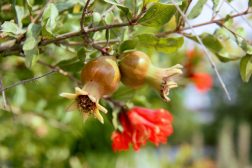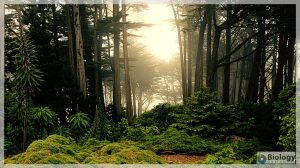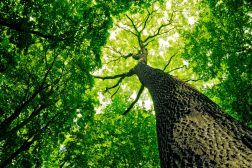Plants that don’t make seeds are called non-seed plants. Ferns and mosses are non-seed plants. They don’t make seeds, but they make spores, and the new plant grow from this spore.
You will also like...

Growth and Plant Hormones
Plants, like animals, produce hormones to regulate plant activities, including growth. They need these hormones to respond well to their environment and to sustain growth, development, and dispersal. Plant biologists recognize five major groups of plant hormones: auxins, gibberellins, ethylene, cytokinins, and abscisic acid. Find out in this guide the importance of each hormone in the life of a plant...

Fruits, Flowers, and Seeds
This tutorial deals with the structure and function of flowers, fruits, and seeds. Also included here are the types of fruits, fruit dispersal mechanisms, and seed germination. The distinctions between dicots and monocots, the two major groups of flowering plants, are presented in this tutorial...

Plant Metabolism
Plants are responsible for incredible feats of molecular transformation. Plant processes, such as photosynthesis, photophosphorylation, chemiosmosis, carbon fixing reactions, respiration, are presented in this tutorial...

Plant Biology
Plantlife can be studied at a variety of levels, from the molecular, genetic and biochemical level through organelles, cells, tissues, organs, individuals, plant populations, and communities of plants. These tutorials will help you learn and appreciate plants regarding their distinctive structures and remarkable inherent strategies for thriving and survival. ..

Community Patterns
Learn about community patterns and the ecological factors influencing these patterns. Revisit some of the ecosystems you've learned about earlier to learn more about the possible impacts of natural and human-induced environmental changes...

